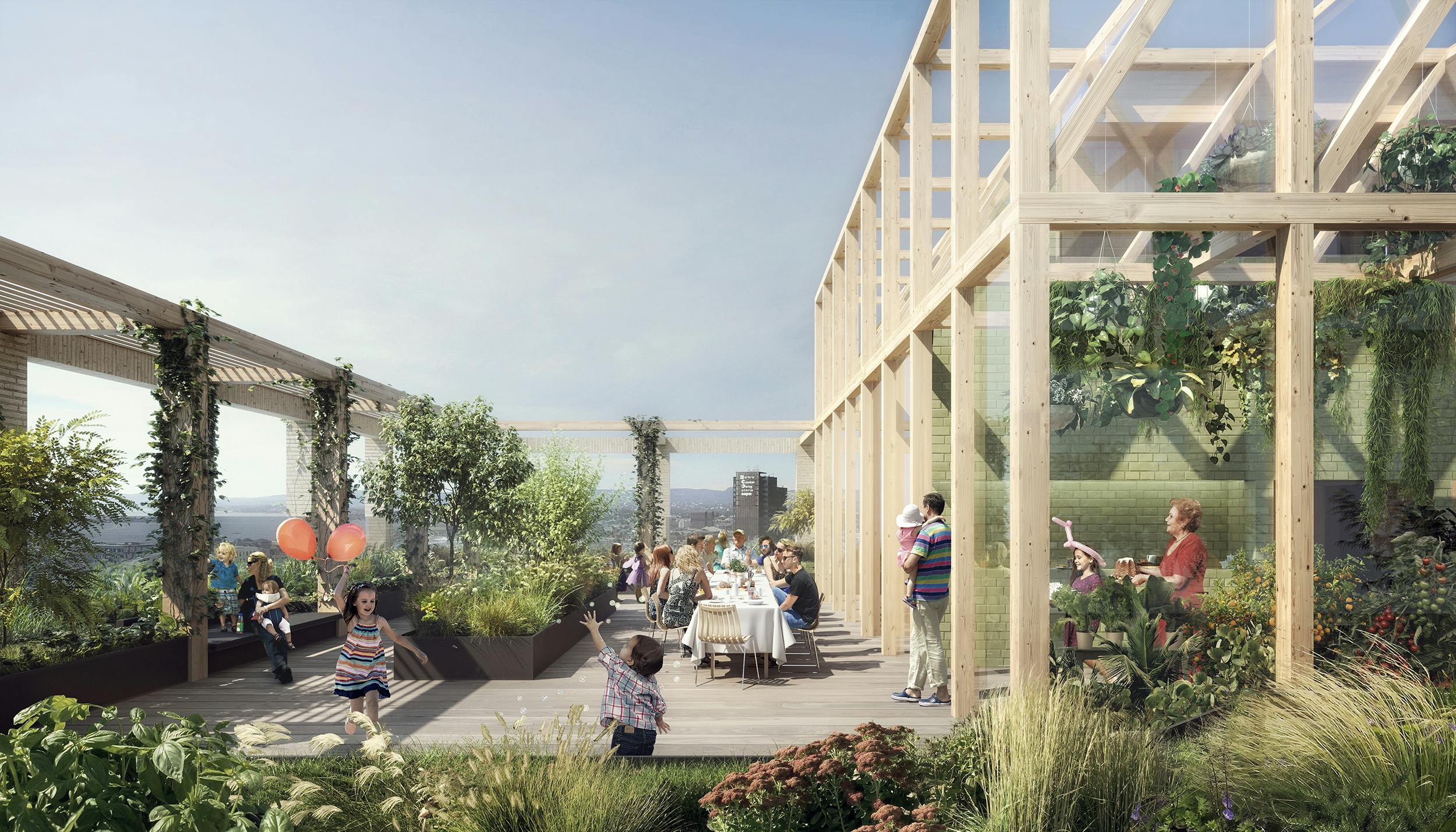Landbrukskvartalet
Oslo
Transborder Studio won the invited competition for a redevelopment of the former dairy factory in Oslo East in 2015 and was commissioned to develop the winning scheme further. Landbrukskvartalet is situated in close proximity to Bjørvika, the Oslo Central Station, the historical old town and the multicultural Grønland. Landbrukskvartalet will be developed in a time when agriculture has a new relevance related to urban food culture, bioproducts and the agricultural sector’s role in a sustainable future. We believe Landbrukskvartalet can highlight these tendencies, and that its development becomes a reinterpretation of the site’s historic relationship between the city and its productive surroundings.







Type
Urban Planning
Client
Landbrukskvartalet Utvikling AS (Vedal, Aspelin Ramm, Bondelaget)
Date
2015 –2023
Status
Regulation completed
Project team
Espen Røyseland (Partner in Charge), Øystein Rø, Vladimir Ilich, Maja Egge Sipus, Joao Amaro, Are Hagen, Ingrid Dobloug Roede, Margrete Bjone Engelien, Fredrikke Frølich, Gauthier Durey, Håvard Skarstein, Søren Olav Saanum Bessesen
Competition team
Øystein Rø, Espen Røyseland, Håvard Skarstein, Fredrikke Frølich, Søren Olav Saanum Bessesen, Margrete Bjone Engelien
Follow the Milk
Landbrukskvartalets existing design is about logistics; Milk in and dairy products out. Our concept starts with following the milk through the facility, letting the flow of the milk define the concept starts with following the milk through the facility, letting the flow of the milk define the design decisions. This results in a porous city block with several openings to the surroundings, a cluster of urban spaces with strong identity and a clear communication of the industrial heritage. Simultaneously Landbrukskvartalet can become a pilot in the use of bio-materials, and Norweigan
agriculture can become the material supplier. The result can become a manifestation of the agriculture’s role in the green shift and an identity based on the historical roots of the city block.




